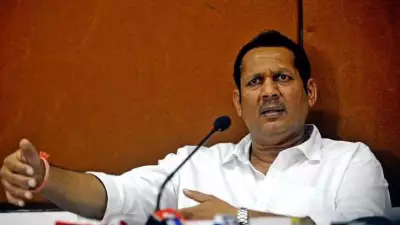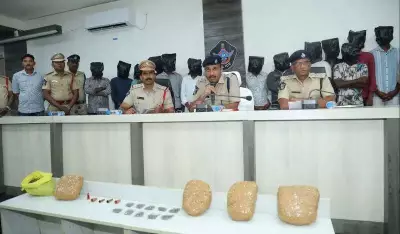
The political landscape between India and Bangladesh has taken a dramatic turn as the interim government in Dhaka prepares to seek international assistance in its pursuit of former Prime Minister Sheikh Hasina.
Bangladesh Turns to Interpol for High-Profile Extradition
The Bangladesh interim administration led by Muhammad Yunus is taking decisive steps to secure the return of former Prime Minister Sheikh Hasina and former Home Minister Asaduzzaman Khan Kamal from India. According to recent developments, the government will formally request Interpol's assistance in the extradition process, marking a significant escalation in the legal and diplomatic standoff.
Both political figures were sentenced to death in absentia by Bangladesh's International Crimes Tribunal for their alleged involvement in what the court described as "crimes against humanity" during the violent student protests that rocked the nation in July 2024. The legal proceedings concluded with the tribunal delivering its verdict despite the absence of the accused.
The Timeline of Events and Current Situation
The sequence of events began with Hasina's dramatic departure from Bangladesh. Historical records indicate that Sheikh Hasina fled to India on August 5, 2024, shortly before the legal proceedings reached their conclusion. Her arrival in India and subsequent protection by Indian authorities has become a central point of contention between the two neighboring nations.
The Bangladesh foreign ministry is expected to formally submit the extradition request, citing existing bilateral treaty obligations between the two countries. Officials in Dhaka have characterized India's protection of the former leaders as "highly unfriendly" toward bilateral relations, indicating the diplomatic strain this situation has created.
India's Stance and Legal Complexities
India has acknowledged receiving the tribunal's verdict but has emphasized the complex legal nature of extradition proceedings. Official statements from New Delhi highlight that extradition represents a lengthy legal process requiring comprehensive review of all legal records and adherence to due process protocols.
Significantly, Indian authorities have pointed to existing exemptions within extradition frameworks, particularly noting that cases may be refused if they are determined to be political in nature. This position suggests potential legal grounds for India to deny the extradition request, though officials have stopped short of confirming whether Sheikh Hasina will ultimately be returned to Bangladesh.
The situation continues to evolve as diplomatic channels remain active between the two nations, with legal experts anticipating a protracted process regardless of the eventual outcome.





